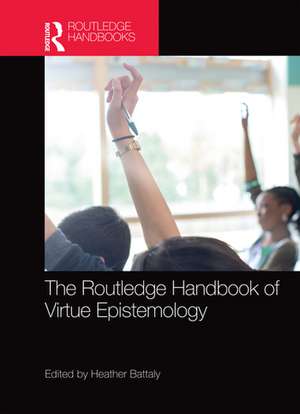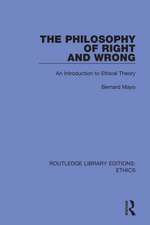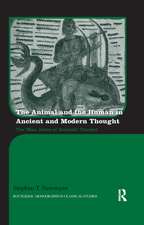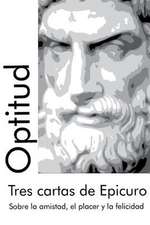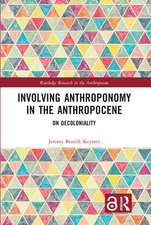The Routledge Handbook of Virtue Epistemology: Routledge Handbooks in Philosophy
Editat de Heather Battalyen Limba Engleză Paperback – 30 iun 2020
- It articulates the structure and features of epistemic virtues.
- It provides in-depth analyses of 10 individual epistemic virtues.
- It examines the connections between epistemic virtue, knowledge, and understanding.
- It applies virtue epistemology, and explores its impact on related fields.
The contributing authors are pioneers in the study of epistemic virtue. This volume is an outstanding resource for students and scholars in philosophy, as well as researchers in intersecting fields, including education, psychology, political science, and women’s studies.
| Toate formatele și edițiile | Preț | Express |
|---|---|---|
| Paperback (1) | 436.14 lei 6-8 săpt. | |
| Taylor & Francis – 30 iun 2020 | 436.14 lei 6-8 săpt. | |
| Hardback (1) | 1221.79 lei 6-8 săpt. | |
| Taylor & Francis – 10 sep 2018 | 1221.79 lei 6-8 săpt. |
Din seria Routledge Handbooks in Philosophy
-
 Preț: 346.27 lei
Preț: 346.27 lei -
 Preț: 366.85 lei
Preț: 366.85 lei -
 Preț: 345.63 lei
Preț: 345.63 lei - 9%
 Preț: 1489.80 lei
Preț: 1489.80 lei -
 Preț: 344.01 lei
Preț: 344.01 lei - 9%
 Preț: 1487.37 lei
Preț: 1487.37 lei -
 Preț: 341.55 lei
Preț: 341.55 lei -
 Preț: 348.50 lei
Preț: 348.50 lei -
 Preț: 404.99 lei
Preț: 404.99 lei -
 Preț: 341.55 lei
Preț: 341.55 lei -
 Preț: 356.63 lei
Preț: 356.63 lei -
 Preț: 359.60 lei
Preț: 359.60 lei -
 Preț: 370.64 lei
Preț: 370.64 lei -
 Preț: 349.50 lei
Preț: 349.50 lei -
 Preț: 438.66 lei
Preț: 438.66 lei -
 Preț: 346.82 lei
Preț: 346.82 lei -
 Preț: 343.76 lei
Preț: 343.76 lei -
 Preț: 341.55 lei
Preț: 341.55 lei -
 Preț: 345.67 lei
Preț: 345.67 lei -
 Preț: 330.04 lei
Preț: 330.04 lei -
 Preț: 341.55 lei
Preț: 341.55 lei -
 Preț: 406.42 lei
Preț: 406.42 lei -
 Preț: 346.58 lei
Preț: 346.58 lei -
 Preț: 346.40 lei
Preț: 346.40 lei - 26%
 Preț: 1215.69 lei
Preț: 1215.69 lei - 25%
 Preț: 1219.04 lei
Preț: 1219.04 lei - 25%
 Preț: 1247.58 lei
Preț: 1247.58 lei - 25%
 Preț: 1222.75 lei
Preț: 1222.75 lei - 25%
 Preț: 1221.79 lei
Preț: 1221.79 lei - 18%
 Preț: 1562.46 lei
Preț: 1562.46 lei - 18%
 Preț: 1547.51 lei
Preț: 1547.51 lei - 25%
 Preț: 1220.12 lei
Preț: 1220.12 lei - 26%
 Preț: 1244.34 lei
Preț: 1244.34 lei - 18%
 Preț: 1567.41 lei
Preț: 1567.41 lei - 25%
 Preț: 1190.31 lei
Preț: 1190.31 lei - 18%
 Preț: 1571.78 lei
Preț: 1571.78 lei - 25%
 Preț: 1225.52 lei
Preț: 1225.52 lei - 25%
 Preț: 1196.43 lei
Preț: 1196.43 lei - 25%
 Preț: 1221.19 lei
Preț: 1221.19 lei - 18%
 Preț: 1565.35 lei
Preț: 1565.35 lei
Preț: 436.14 lei
Nou
Puncte Express: 654
Preț estimativ în valută:
83.47€ • 86.91$ • 70.54£
83.47€ • 86.91$ • 70.54£
Carte tipărită la comandă
Livrare economică 08-22 martie
Preluare comenzi: 021 569.72.76
Specificații
ISBN-13: 9780367571085
ISBN-10: 0367571080
Pagini: 554
Dimensiuni: 178 x 254 x 28 mm
Greutate: 0.45 kg
Ediția:1
Editura: Taylor & Francis
Colecția Routledge
Seria Routledge Handbooks in Philosophy
Locul publicării:Oxford, United Kingdom
ISBN-10: 0367571080
Pagini: 554
Dimensiuni: 178 x 254 x 28 mm
Greutate: 0.45 kg
Ediția:1
Editura: Taylor & Francis
Colecția Routledge
Seria Routledge Handbooks in Philosophy
Locul publicării:Oxford, United Kingdom
Cuprins
Part 1: Epistemic Virtues: General Structure and Features 1. Telic Virtue Epistemology 2. Intellectual Virtues: Admirable Character Traits 3. Do Epistemic Virtues Require a Motivation for Truth? 4. The Role of Emotion in Intellectual Virtue 5. Are Epistemic Virtues a Kind of Skill? 6. What Makes the Epistemic Virtutes Valuable? 7. Virtue Epistemology and the Sources of Epistemic Value 8. Virtue Epistemology, Virtue Ethics, and the Structure of Virtue 9. Sentimentalist Virtue Epistemology: Beyond Responsibilism and Reliabilism 10. A Third of Kind Intellectual Virtue: Personalism 11. There are no Epistemic Virtues Part 2: Analyses of Individual Epistemic Virtues 12. Open-mindedness 3. Curiosity and Inquisitiveness 14. Creativity as an Epistemic Virtue 15. Intellectual Humility 16. Epistemic Autonomy in a Social World of Knowing 17. The Epistemic Virtue of Deference 18. Skepticism 19. Epistemic Justice: Three Models of Virtue 20. Epistemic Courage and the Harms of Epistemic Life 21. Intellectual Perseverence Part 3: Epistemic Virtues, Knowledge, and Understanding 22. Virtue, Knowledge, and Achievement 23. Virtue Epistemology and Epistemic Luck 24. Virtue Epistemology and Explanatory Salience 25. Virtue Epistemology and Abilism on Knowledge 26. Virtue Reliabilism and the Value of Knowledge: Classical and New Problems 27. Epistemic Virtues in Understanding 28. Understanding as an Intellectual Virtue 29. Intellectual Virtue, Knowledge, and Justification 30. Understanding, Humility, and the Vices of Pride Part 4: Virtue Epistemology: Application and Impact 31. Feminist Virtue Epistemology 32. Virtue Epistemology and the Environment 33. Virtue Epistemology and Collective Epistemology 34. Virtue Epistemology and Extended Cognition 35. Psychological Science and Virtue Epistemology: Intelligence as an Interactionist Virtue 36. Dual-process Theory and Intellectual Virtue: A Role for Self-Confidence 37. Virtue Epistemology and Confucian Philosophy 38. Virtue Epistemology and Education 39. Virtue Epistemology and Developing Intellectual Virtue 40. Virtue Epistemology and Clinical Medical Judgment 41. The Relation between Virtue Ethics and Virtue Epistemology
Notă biografică
Heather Battaly is Professor of Philosophy at the University of Connecticut, having previously taught at California State University, Fullerton. She is author of Virtue (2015), editor of the Journal of Philosophical Research, and associate editor of the Journal of the American Philosophical Association. She is currently working on a book on intellectual vice.
Recenzii
"This superb volume is a who's who of virtue epistemology. Virtually every major contributor to the field, including its founding fathers and mothers, has contributed an essay, and the standard of the contributions is as high as one would expect. In terms of its range, depth and originality there is no better book on the subject. Highly recommended."
-Quassim Cassam, University of Warwick
"By philosophy’s standards, virtue epistemology is young. It is also highly promising, both as a way of thinking about traditional epistemological challenges and as a way to lead epistemologists along new pathways. So this fine book is timely, an excellent resource for understanding a potentially significant element within future epistemological research. The chapters on the wider world of the intellect and socially engaged action, and those on individual epistemic virtues, are especially distinctive and welcome."
Stephen Hetherington, University of New South Wales
"Battaly’s volume is a masterful scholarly accomplishment, a joy to read, and an inspiring collection of essays that will spark new debates in virtue epistemology. The volume contains brilliantly edited, cutting-edge scholarship with exceptional depth and breadth. It is a must-read for those interested in normative and practical issues in epistemology, and for those interested in epistemic issues in ethics, political philosophy, and practical and applied philosophy."
- José Medina, Northwestern University
-Quassim Cassam, University of Warwick
"By philosophy’s standards, virtue epistemology is young. It is also highly promising, both as a way of thinking about traditional epistemological challenges and as a way to lead epistemologists along new pathways. So this fine book is timely, an excellent resource for understanding a potentially significant element within future epistemological research. The chapters on the wider world of the intellect and socially engaged action, and those on individual epistemic virtues, are especially distinctive and welcome."
Stephen Hetherington, University of New South Wales
"Battaly’s volume is a masterful scholarly accomplishment, a joy to read, and an inspiring collection of essays that will spark new debates in virtue epistemology. The volume contains brilliantly edited, cutting-edge scholarship with exceptional depth and breadth. It is a must-read for those interested in normative and practical issues in epistemology, and for those interested in epistemic issues in ethics, political philosophy, and practical and applied philosophy."
- José Medina, Northwestern University
Descriere
This landmark volume provides a pluralistic and comprehensive picture of the field of virtue epistemology.
